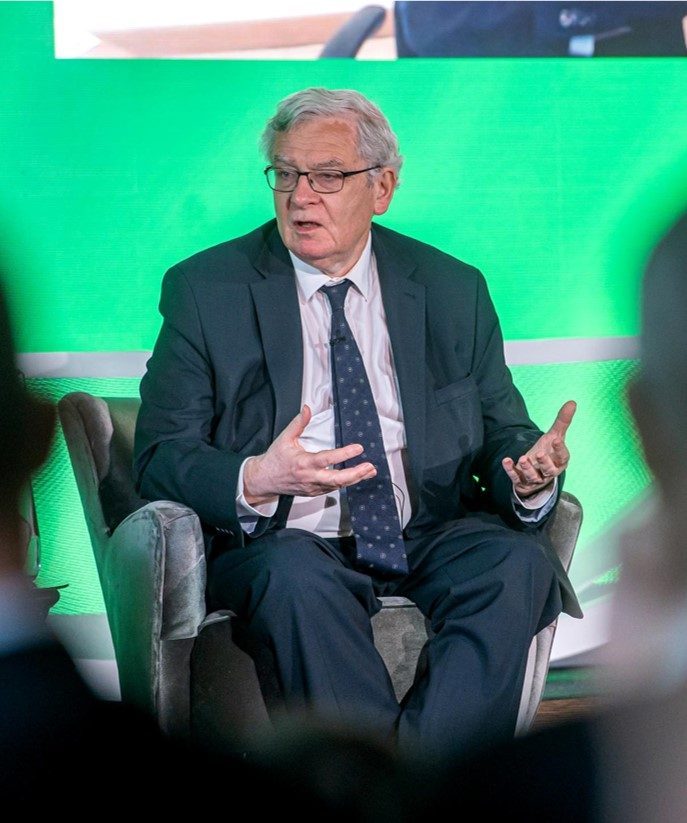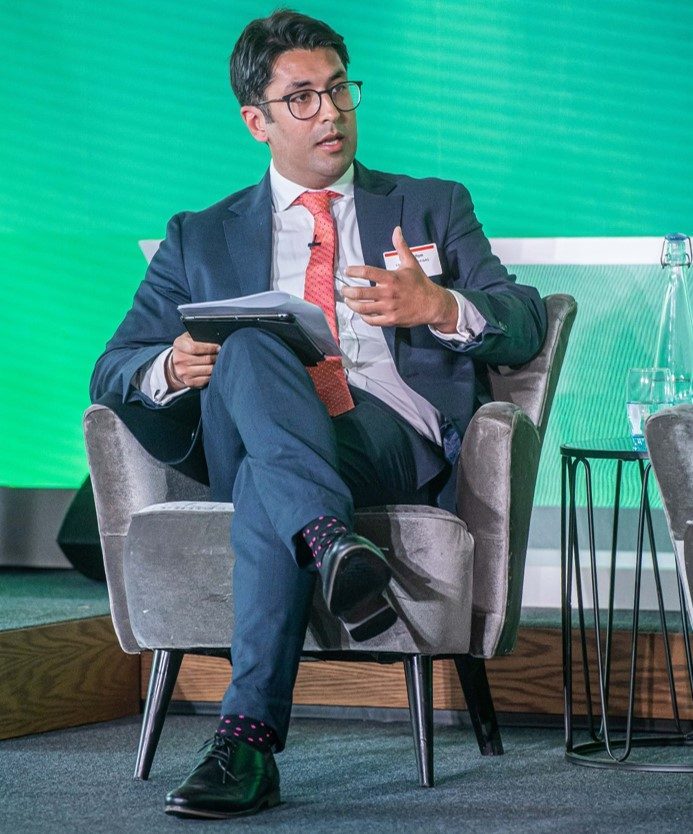After an 18 month pandemic-induced hiatus on physical events, the fifth annual BNP Paribas Global Markets Conference once again returned to London on November 3, where industry leaders and experts drawn from politics, sustainability, financial services and technology shared their unique insights into some of the disruptive transformations shaping the world today.
Sustainability: Action required
Taking place against the backdrop of the COP26 Climate Summit, sustainability was a recurrent theme at BNP Paribas’ Global Markets Conference. Policymakers highlighted the EU is at the forefront of the climate change debate and is pushing through a number of reforms around sustainability – including its Green Deal. It is not just politicians who recognise the urgency of climate change risk; one investment manager told the audience that climate change considerations are a major determinant behind their asset allocation strategies with renewables likely to form a large proportion of their portfolios. One speaker further noted that simply divesting from carbon intensive enterprises was not conducive, saying investors should be building up positions in businesses operating in pollutant sectors provided they are willing to transition.
Building back a stronger Europe
After a poor initial response to Covid-19, one former policy maker said the EU has since atoned for itself through its effective vaccination programme. It also demonstrated extraordinary resolve and flexibility in its monetary and fiscal response to the pandemic, most notably through the €750 billion pandemic recovery package, which helped blunt the crisis’ impact and facilitated a better than expected economic recovery, according to another politician. A French policymaker noted than in contrast to previous crises, the EU demonstrated extraordinary fiscal flexibility in its response to COVID-19, having suspended fiscal rules obliging member states to implement policies that keep deficits at less than 3% and debt under 60% of GDP – until 2023. He continued, however, that fiscal rules must be reintroduced post-crisis but added they needed to be different from what was in place previously.
Along with the EU’s budget, they remarked that the NextGenerationEU Programme would be instrumental in the bloc’s revitalisation, by laying the foundations for a green and digital economic recovery. Jean Lemierre, Chairman of BNP Paribas, said most Europeans believe the EU and its leaders backed them during this difficult period, which is translating into greater support for the EU as an institution, concluding that “Europe will converge on the new normal.”

Are digital currencies and smart assets democratising finance?
Digital assets are diverse in nature and do not simply comprise of crypto-currencies, the conference heard. This universe covers StableCoins, digital currencies whose value is pegged to underlying fiat money, along with Central Bank Digital Currencies [CBDCs], digital money issued and controlled by Central Banks, and security tokens, which are fractionalised, digital representations of real world assets [e.g. a corporate bond, lease agreement, a car etc] traded on DLT [distributed ledger technology].

San Dhillon, Head of Product at Exane BNP Paribas, said a handful of markets including the EU, China and the Bahamas are currently trialling CBDCs. According to speakers, the emergence of CBDCs is a response to society becoming increasingly cashless, together with a growing realisation among Central Banks that these assets can facilitate significant efficiencies by eliminating intermediation pain-points in payments and securities settlement processes.
SPACs: Game changer or short-term trend?
We sincerely hope that SPACs are not a short-term trend, but a long lasting story and a game changer for the IPO market.
Emmanuel Dray, Global Head of Flow Sales Equity Derivatives, Global Markets at BNP Paribas
Special Purpose Acquisition Companies (SPACs) have exploded in both their number and market capitalisation with Emmanuel Dray, Global Head of Flow Sales EQD, Global Markets at BNP Paribas, highlighting a 10-fold increase in issuances this year alone compared to 2019, when issues totalled just $14 billion. A fund manager explained SPACs are typically run by private equity experts or serial entrepreneurs and operate as listed wrapper companies, which raise funds from investors and deploy the proceeds to take private companies public through a reverse merger transaction.

In addition to SPAC mergers being much quicker to execute than IPOs, the CEO of a European SPAC said the vehicles enable acquiree companies to benefit from upfront price discovery, and within the confines of a private setting. Conversely, IPO pricing tends to happen at the end of the transaction’s lifecycle, often in a public environment. “We sincerely hope that SPACs are not a short-term trend, but a long lasting story and a game changer for the IPO market,” said Dray.
The market view
Over the course of the day, investment experts gave their finely tuned market view on all the disruptive topics covered by the conference.
A leading fund manager said there is a record amount of cash currently sloshing around in the system yet the low and sometimes negative interest rates is making it harder for savers “to retire with dignity.” Exacerbating matters further is that inflation is projected to persist owing to labour shortages. A panel of investment experts reflected the sentiment on inflation, with one speaker noting that whether you believe inflation to be transitory or otherwise, it will take time for any normalisation to occur, and we may never return to our current equilibrium.
Disruption is everywhere, in the way we work, the way we communicate, and the way we invest. But if we can understand the disruptive factors impacting us today, we will be able to navigate them better, and invest more wisely.
Olivier Osty, Head of Global Markets at BNP Paribas
One CIO noted there was a huge bifurcation in the value of assets, depending on whether they are publicly listed or privately held, adding that the gap had widened significantly in recent years. He said that whereas previously private equity managers used to pay a 20% premium, a number of transactions nowadays have a 40%-60% premium. While some may argue private equity firms are overpaying for assets, he noted, corporate leaders might retort that the public markets are undervaluing their securities.
Against the backdrop of the range of disruptive topics under discussion at the conference, Olivier Osty, Head of Global Markets, commented, “Disruption is everywhere, in the way we work, the way we communicate, and the way we invest. But if we can understand the disruptive factors impacting us today, we will be able to navigate them better, and invest more wisely.”

